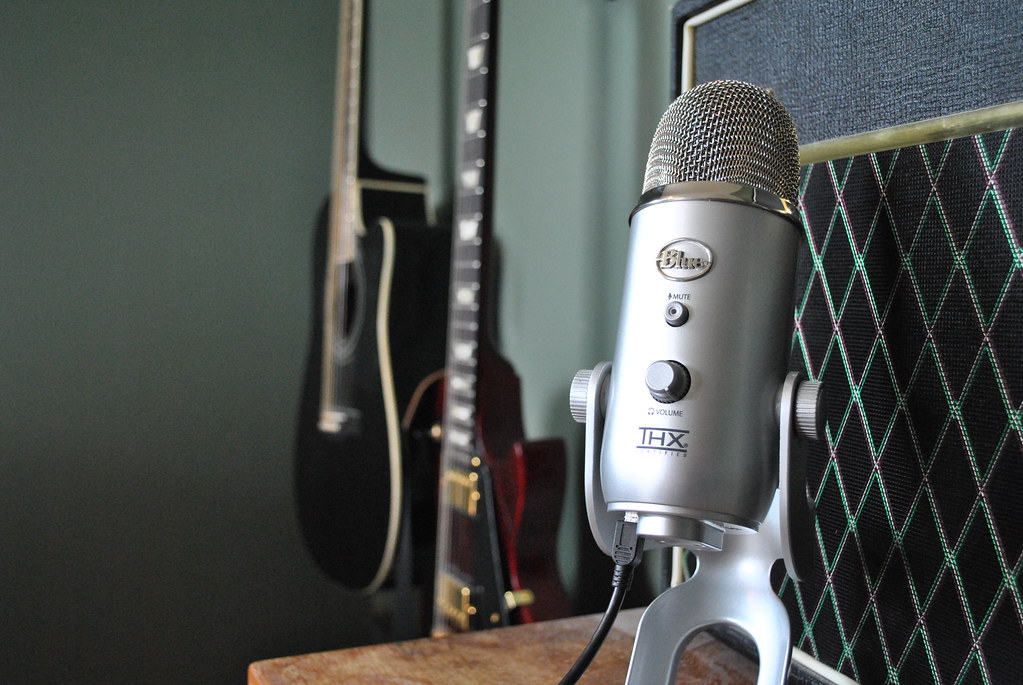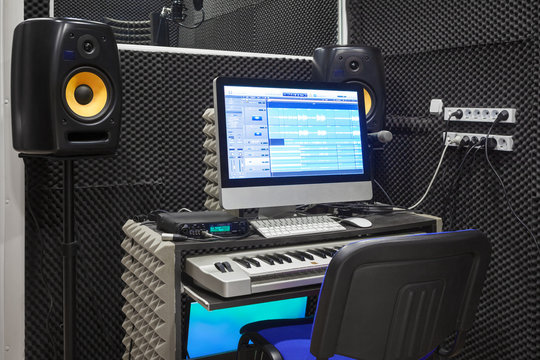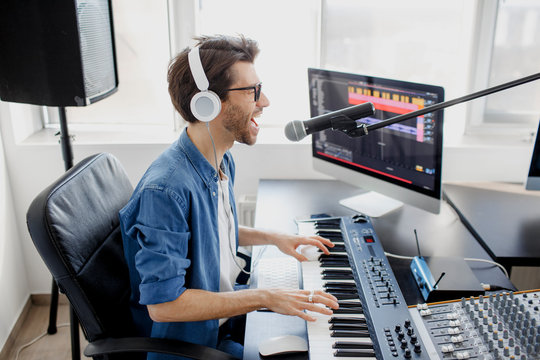Are you interested in pursuing a career in music production? If so, obtaining a degree from one of the best music production degree colleges in the United States is a great way to get started. Music production degrees can provide you with a comprehensive education in music theory, recording techniques, mixing and mastering, and music business. In this article, we’ll introduce you to the top music production degree colleges in the United States and provide you with information on their curricula, admission requirements, and tuition costs. Whether you’re interested in music production, audio engineering, sound design, or music business, a music production degree can help you achieve your career goals.
Table of Contents

Benefits of Obtaining a Music Production Degree
Are you considering pursuing a music production degree but wondering if it’s worth the investment? Here are some benefits to consider:
Increased Job Opportunities
Obtaining a music production degree can open up a variety of job opportunities in the music industry. With the increasing demand for music and the rise of new media platforms, such as podcasts and social media, the need for skilled music producers is higher than ever. Jobs such as music producer, audio engineer, and sound designer often require a music production degree.
Higher Earning Potential
According to the Bureau of Labor Statistics, the median annual wage for producers and directors in the motion picture and video industries was $76,400 in May 2020. The median annual wage for sound engineering technicians was $55,810 in May 2020. A music production degree can provide you with the skills and knowledge needed to excel in these careers, leading to higher earning potential.
Job Security
The music industry is constantly evolving, but the need for skilled music producers remains constant. With a music production degree, you’ll have the skills and knowledge needed to succeed in the industry, making you a valuable asset to music-related businesses. Additionally, having a degree can provide a sense of job security, as employers often prefer to hire individuals with formal education and training.
Access to Industry Connections
Many music production degree programs offer students the opportunity to network with industry professionals. This can provide valuable connections and opportunities for internships or job placements after graduation. Additionally, some music production degree programs offer access to industry-specific events and workshops, providing students with additional opportunities to learn and network.
Creative and Technical Skills
A music production degree program can provide you with a unique combination of creative and technical skills. You’ll learn about music theory, composition, recording, mixing, and mastering. You’ll also gain hands-on experience with industry-standard equipment and software. This combination of skills can prepare you for a successful career in the music industry.
Overall, obtaining a music production degree can provide you with numerous benefits, including increased job opportunities, higher earning potential, job security, access to industry connections, and the development of creative and technical skills.
How to Choose the Best Music Production Degree Program
Choosing a music production degree program can be a daunting task, but fear not, we’ve got you covered. Here are some essential factors to consider when evaluating different programs:
Location
Location is a crucial factor to consider when choosing a music production degree program. You’ll want to choose a program located in a music hub, such as Los Angeles, Nashville, or New York City. These cities offer a wealth of opportunities for hands-on experience, internships, and networking.
Curriculum
A comprehensive curriculum is essential when choosing a music production degree program. Look for programs that offer courses in music theory, recording techniques, mixing and mastering, and music business. You’ll also want to ensure the program provides hands-on experience, such as access to industry-standard equipment and software.
Faculty
The faculty of a music production degree program can provide valuable insight and connections to the music industry. Research the faculty members and their experience in the music industry. Look for programs with faculty members who have experience in your area of interest and can offer guidance and mentorship.
Facilities
The facilities of a music production degree program are essential for gaining hands-on experience. Look for programs that offer access to industry-standard equipment and software, recording studios, and practice spaces. You’ll also want to ensure that the facilities are up-to-date and well-maintained.
Internships
Internships are an excellent way to gain practical experience in the music industry. Look for programs that offer internships as part of their curriculum. Internships can provide valuable hands-on experience and networking opportunities, which can lead to future career opportunities.
Choosing the best music production degree program requires careful consideration of these factors. Keep them in mind when evaluating different programs to ensure you choose the best one for your career goals.

Top Music Production Degree Colleges in the United States
Are you looking for the best music production degree colleges in the United States? Look no further! We have compiled a list of the top music production degree colleges that offer excellent career opportunities:
-
Berklee College of Music – Located in Boston, Massachusetts, Berklee College of Music is one of the most prestigious music schools globally and offers a Bachelor of Music in Music Production and Engineering program. This program covers all aspects of music production, including music theory, composition, recording, mixing, and mastering techniques. Students receive hands-on training with industry-standard equipment and software, preparing them for successful careers in the music industry.
-
Full Sail University – Located in Winter Park, Florida, Full Sail University offers a Bachelor of Science in Music Production. This program provides students with the opportunity to gain hands-on experience in the field. The curriculum covers music theory, composition, recording, mixing, and mastering techniques. Graduates of Full Sail University have access to numerous internships and career opportunities in the music industry.
-
University of Southern California – Located in Los Angeles, California, the University of Southern California offers a Bachelor of Science in Music Production degree program. This program focuses on music theory, composition, recording, mixing, and mastering techniques. Students also take courses in music business and technology, providing them with a well-rounded education in the music industry.
-
New York University – Located in New York City, New York University offers a Bachelor of Music in Music Technology degree program. This program covers all aspects of music production, including music theory, recording, mixing, and mastering techniques. Students also take courses in music business and technology, preparing them for successful careers in the music industry.
-
Indiana University – Located in Bloomington, Indiana, Indiana University offers a Bachelor of Science in Audio Engineering and Sound Production degree program. This program provides hands-on experience in the field and covers music theory, composition, recording, mixing, and mastering techniques. Graduates of Indiana University have access to numerous career opportunities in the music industry.
These colleges offer comprehensive education in music production, preparing students for successful careers in the music industry.
Insider Tips for Choosing a Music Production Degree Program
Choosing the right music production degree program is vital to your success in the music industry. To help you make an informed decision, we’ve gathered some insider tips that you should keep in mind when evaluating different programs.
Research Faculty Members
Researching the faculty members at each program is crucial to finding a program that fits your needs. Look for programs with faculty who have worked as music producers, audio engineers, or other industry professionals, as they can provide valuable insights and connections. Check the faculty’s credentials, experience, and reputation in the industry. You want to ensure that you learn from the best in the field to get the most out of your education.
Look for Hands-on Experience and Internships
Hands-on experience and internships are essential in the music industry. Look for programs that offer practical experience with industry-standard equipment and software. These hands-on experiences can help you build your portfolio and prepare you for a successful career in the music industry. Additionally, internships are an excellent opportunity to gain practical experience and build your professional network. Look for programs that offer internships with reputable companies in the music industry.
Consider the Location of the Program
The location of the program is an important factor to consider. Look for programs that are located in cities with a thriving music industry. These cities offer excellent opportunities for networking and building connections in the industry. Consider the availability of recording studios, music festivals, and live music venues in the area. These opportunities can help you gain practical experience and make valuable connections in the industry.
By keeping these insider tips in mind, you can choose a music production degree program that fits your needs and prepares you for a successful career in the music industry.

A Day in the Life of a Music Producer
To give you a better understanding of what a career in music production entails, let’s take a look at a typical day in the life of a music producer. Although a music producer’s day can vary greatly depending on their specific role and the projects they are working on, here is an overview of some of the tasks that they may encounter:
Administrative Tasks
In the morning, a music producer might start their day by reviewing and responding to emails, scheduling studio time, and managing budgets. They might also work on contracts, invoices, and other paperwork related to their projects.
Creative Work
In the afternoon, a music producer might work with artists to develop and arrange songs, record and mix tracks, and provide feedback and suggestions. They might also collaborate with songwriters, composers, and other music professionals to create new music.
Technical Work
A music producer’s day can also involve technical work such as setting up equipment, troubleshooting technical issues, and managing audio files.
Professional Development
In the evening, a music producer might attend live performances, network with other industry professionals, or work on their own personal projects. They might also take courses or attend workshops to stay current with new technologies and techniques in music production.
Overall, a music producer’s day is a mix of administrative tasks, creative work, and technical work. It requires a combination of technical and creative skills, as well as excellent communication and organizational skills.

Music Production Industry Trends: What You Should Know
The music production industry is an ever-evolving field, and it’s essential to stay up-to-date with the latest trends and developments. One of the most significant trends in the industry is the increasing use of technology. With the rise of digital audio workstations (DAWs), producers can now accomplish tasks that were previously impossible in the analog world. Virtual instruments and effects plugins have also become more prevalent, making it easier for producers to achieve a professional sound without breaking the bank.
Another trend in the music production industry is the shift towards streaming services. With the rise of platforms like Spotify, Apple Music, and Tidal, music consumption has moved away from physical media and downloads. This shift has changed the way music is distributed, marketed, and monetized. As a result, music producers need to adapt to this change by understanding how streaming services work and how to optimize their productions for this new format.
Finally, the rise of social media has made it easier than ever for producers to promote their work and connect with fans. Social media platforms like Instagram, Twitter, and TikTok have become crucial tools for building a brand and reaching a wider audience. By leveraging social media, producers can not only promote their music but also engage with their fans and build a community around their work.
To stay ahead of the game, music producers need to stay informed about these trends and adapt their production techniques accordingly. By embracing technology, understanding streaming services, and leveraging social media, producers can succeed in today’s music industry.

The Future of Music Production: Trends and Predictions
The music production industry is constantly evolving, and it’s crucial for aspiring music producers to stay up-to-date on the latest trends and predictions. One major trend in the industry is the increasing use of artificial intelligence (AI) and machine learning (ML) in music production. AI and ML tools can analyze music data, create customized music, and improve the production process. For example, AI and ML can be used to analyze data and create customized music based on individual preferences and trends. They can also help producers to automate repetitive tasks, such as audio editing, minimizing the time required for production.
Additionally, virtual and augmented reality technology is being used to create immersive music experiences and performances. VR technology can create virtual environments where music events can take place, while AR can enhance live performances by adding interactive elements to the show. This technology can give music producers new ways to connect with audiences and create unique experiences.
As technology continues to advance, it’s likely that the role of music producers will continue to change and adapt in new and exciting ways. Music production skills will continue to be in high demand, and producers who stay up-to-date with industry trends and technology will have an advantage in the job market.

Music Production Careers: Opportunities and Salaries
A music production degree can lead to various career opportunities in the music industry. Here are some of the most common career paths for music production graduates:
Music Producer
A music producer is responsible for overseeing the entire music production process, from recording to mastering. They work closely with artists to help them achieve their desired sound. Music producers can work in recording studios, record labels, music production companies, or even start their own businesses.
According to Salary.com, the average annual salary for a music producer in the United States is $75,000. However, this can vary depending on the producer’s experience, location, and the type of work they do.
Audio Engineer
An audio engineer is responsible for recording, mixing, and mastering music. They work closely with music producers and artists to ensure the best possible sound quality. Audio engineers can work in recording studios, live sound reinforcement, and broadcast.
According to Salary.com, the average annual salary for an audio engineer in the United States is $51,000. However, this can vary depending on the engineer’s experience, location, and the type of work they do.
Sound Designer
A sound designer is responsible for creating sound effects and music for various media, such as video games, movies, and television shows. They work closely with directors, game designers, and producers to create unique and engaging soundscapes.
According to Salary.com, the average annual salary for a sound designer in the United States is $68,000. However, this can vary depending on the designer’s experience, location, and the type of work they do.
Composer
A composer is responsible for creating original music for various media, such as movies, television shows, and video games. They work closely with directors and producers to create music that helps tell the story.
According to Salary.com, the average annual salary for a composer in the United States is $54,000. However, this can vary depending on the composer’s experience, location, and the type of work they do.
Music production careers offer a range of opportunities for those with a degree in music production. Salaries for music production jobs can vary widely depending on the specific job, experience, and location, among other factors.

Pros and Cons of Pursuing an Online Music Production Degree
Online music production degree programs are becoming increasingly popular, but it’s important to weigh the pros and cons before enrolling. Here are some of the advantages and disadvantages of pursuing an online music production degree:
Pros
-
Flexibility and Convenience: Online programs offer flexibility and convenience, as students can complete coursework on their own schedule and from anywhere in the world. This is especially beneficial for students who live far from a traditional campus or have other commitments, such as work or family.
-
Affordability: Online programs can be more affordable than traditional programs, as they often have lower tuition costs and can allow students to save money on housing and commuting expenses.
-
Access to Resources: Online students often have access to the same resources as traditional students, such as online libraries, tutoring services, and career counseling.
Cons
-
Lack of Hands-On Experience: Online programs may not offer the same level of hands-on experience as traditional programs. This can be especially important in music production, where hands-on experience with equipment and software is crucial.
-
Limited Networking Opportunities: Online programs may not offer the same level of networking opportunities as traditional programs. Networking is an essential part of the music industry, and traditional programs may offer more opportunities for students to connect with industry professionals and other students.
-
Accreditation: Some online programs may not be accredited by the same organizations as traditional programs. It’s important to ensure that the program you choose is accredited by a reputable organization to ensure the quality of your education.
It’s important to carefully consider the pros and cons of pursuing an online music production degree before making a decision. Online programs can offer flexibility and affordability, but may not provide the same level of hands-on experience and networking opportunities as traditional programs.

Music Production Degree vs. Self-Taught: Which One is Right for You?
Music production is a field that requires both technical and creative skills. While obtaining a music production degree can provide a solid foundation in both areas, becoming self-taught can also be a viable option for those who are dedicated and disciplined.
Benefits of Obtaining a Music Production Degree
Obtaining a music production degree can provide many benefits, such as:
- Comprehensive education in music theory, composition, recording, mixing, and mastering techniques.
- Hands-on experience with industry-standard equipment and software.
- Connections in the industry that can lead to job opportunities.
Drawbacks of Obtaining a Music Production Degree
However, obtaining a music production degree also has some drawbacks, such as:
- Cost of tuition and other expenses.
- Time commitment required to complete the program.
- The degree may not guarantee a job in the industry.
Benefits of Being Self-Taught
Becoming self-taught in music production can also have some benefits, such as:
- Flexibility in learning at your own pace and on your own schedule.
- Lower cost compared to obtaining a degree.
- The ability to focus on specific areas of interest.
Drawbacks of Being Self-Taught
However, becoming self-taught also has some drawbacks, such as:
- The lack of a comprehensive education in music theory, composition, and other areas.
- Limited access to industry-standard equipment and software.
- Difficulty in networking and making connections in the industry.
When deciding whether to obtain a music production degree or become self-taught, it’s important to weigh the benefits and drawbacks of each option and choose the one that aligns with your goals, learning style, and budget.

Music Production Degree Programs Online: What You Need to Know
Are you interested in pursuing a music production degree but struggling to find the time to attend traditional classes? Online music production degree programs can provide you with the flexibility and convenience you need. However, before enrolling in an online program, there are some things you need to know.
Firstly, it’s essential to research online programs carefully and ensure that they are accredited by a reputable organization. Accreditation ensures that the program meets certain standards and will be recognized by employers.
Secondly, online programs may not offer the same level of hands-on experience as traditional programs. However, many online programs provide virtual labs and simulation software, allowing students to gain practical experience in a digital environment.
Thirdly, online programs may require a higher level of self-motivation and time management skills. As students are responsible for completing coursework and studying on their own, it’s important to have good time management skills to stay on track.
Lastly, online programs may have different admission requirements, such as minimum computer specifications and internet speed. Make sure you have access to the necessary technology before applying.
Overall, online music production degree programs offer flexibility and convenience, but it’s important to carefully consider the pros and cons before making a decision.

The Impact of Music Production on the Music Industry
Music production is a fundamental aspect of the music industry, shaping and defining the sound of various genres and styles. With the power to transform raw ideas into polished songs, music production creates unique and memorable sounds that stand out in a crowded marketplace. It also helps to bring artists and listeners closer together, creating an emotional connection through sound.
Music production has not only revolutionized the way we listen to music but has also had a significant impact on the industry’s bottom line. By creating high-quality recordings, music production has helped to increase the value of music and contributed to the growth of the entire industry.
As technology continues to advance, music production is becoming more accessible, allowing for more experimentation and creativity. The democratization of music production has opened up new opportunities for artists to explore their sound and develop a unique style.
In conclusion, music production is an essential aspect of the music industry, and its impact continues to be felt across all genres and styles. Obtaining a music production degree is a crucial step for anyone looking to pursue a career in the field. With a music production degree, you can gain a comprehensive education in music theory, composition, recording, mixing, and mastering techniques. You can also gain hands-on experience and connections in the industry. Explore our website for more insights on music production and how to get started on your journey in the music industry.
Check out our other content for more insights on music production and how to get started in the music industry.
Questions
Who can benefit from obtaining a music production degree?
Anyone interested in music production, audio engineering, sound design, or music business.
What are the benefits of obtaining a music production degree?
Increased job opportunities, higher earning potential, job security, and access to industry connections.
How do I choose the best music production degree program?
Consider location, curriculum, faculty, facilities, and internships offered.
Who should consider an online music production degree?
Students who need flexibility and convenience in their education.
What are the pros and cons of pursuing an online music production degree?
Pros include flexibility and affordability, cons include lack of hands-on experience and networking opportunities.
How do music production degree programs prepare students for the industry?
By providing a comprehensive education in music theory, recording techniques, mixing and mastering, and music business.

